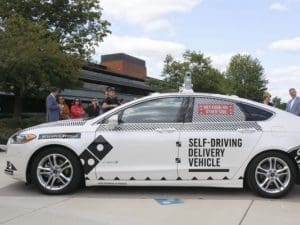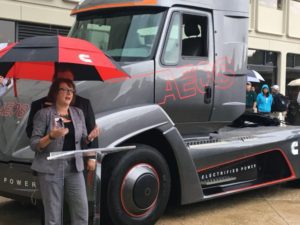 This weekend is Labor Day weekend in the United States. It represents the creation of the labor movement and is dedicated to the social and economic achievements of American workers. The first Labor Day holiday was celebrated on Tuesday, September 5, 1882, in New York City, in accordance with the plans of the Central Labor Union. Now, the holiday is celebrated annually on the first Monday in September. The Labor Day weekend also represents the unofficial end of summer. It’s very hard to believe that it is actually September, but the fall is my favorite season of all – cool and crisp days, NFL football, and using the fire pit. So while we bid adieu to summer, I say welcome to fall.
This weekend is Labor Day weekend in the United States. It represents the creation of the labor movement and is dedicated to the social and economic achievements of American workers. The first Labor Day holiday was celebrated on Tuesday, September 5, 1882, in New York City, in accordance with the plans of the Central Labor Union. Now, the holiday is celebrated annually on the first Monday in September. The Labor Day weekend also represents the unofficial end of summer. It’s very hard to believe that it is actually September, but the fall is my favorite season of all – cool and crisp days, NFL football, and using the fire pit. So while we bid adieu to summer, I say welcome to fall.
And now, on to the news.
- Körber acquires HighJump
- Harvey causes disruption for freight companies
- Domino’s and Ford team up for driverless pizza delivery test
- UK government announces funding for truck platooning trials
- Terrorist attacks on businesses’ supply chains hit new highs
- JD.com offers $15m prize for drone competition
- Cummins unveils electric tractor concept
- Increased cargo theft activity expected over Labor Day weekend
![]() International technology group Körber has acquired HighJump, a global provider of supply chain management software that encompasses warehouse, transportation, and omni-channel solutions. The acquisition will build Körber’s cloud-based application suite, while providing a stronger foothold in the US, given HighJump’s customer base. The purchase of HighJump, which is effective as of August 28, will be from its parent company, Accellos Holdings and its primary investor, Accel-KKR. Both parties agreed not to disclose details of the purchase price.
International technology group Körber has acquired HighJump, a global provider of supply chain management software that encompasses warehouse, transportation, and omni-channel solutions. The acquisition will build Körber’s cloud-based application suite, while providing a stronger foothold in the US, given HighJump’s customer base. The purchase of HighJump, which is effective as of August 28, will be from its parent company, Accellos Holdings and its primary investor, Accel-KKR. Both parties agreed not to disclose details of the purchase price.
 Tropical Storm Harvey has caused billions of dollars of damage in southeast Texas. With freight traffic showing no signs of returning to normal any time soon, trucking fleets, railroads, and shipping lines are scrambling to reroute cargo and set up alternate supply lines. Many freight companies say they have no idea when they will resume operations. Once the weather clears, it could be days before floodwaters recede enough to allow dockworkers back into ports, or trucks to resume normal routes. The end result will be late shipments, lost goods, and delays across the greater supply chain for many companies. All of this pales in comparison with what the people of southeast Texas are going through. All of us here at Logistics Viewpoints have the people of Texas in our thoughts.
Tropical Storm Harvey has caused billions of dollars of damage in southeast Texas. With freight traffic showing no signs of returning to normal any time soon, trucking fleets, railroads, and shipping lines are scrambling to reroute cargo and set up alternate supply lines. Many freight companies say they have no idea when they will resume operations. Once the weather clears, it could be days before floodwaters recede enough to allow dockworkers back into ports, or trucks to resume normal routes. The end result will be late shipments, lost goods, and delays across the greater supply chain for many companies. All of this pales in comparison with what the people of southeast Texas are going through. All of us here at Logistics Viewpoints have the people of Texas in our thoughts.
 Domino’s Pizza has shown innovation recently when it comes to deliveries, especially with the use of robots in Australia, Germany, and the Netherlands, as well as drones in New Zealand. The pizza chain is at it again, this time testing home delivery in Ann Arbor, MI via autonomous vehicles. The test involves using a Ford Fusion sedan with markings and gear on the roof to indicate it is self-driving. The customer will receive a text message when the pizza has arrived and will have to enter the last four digits of their phone number on a tablet mounted on the car. When the number is entered, the window will open and customers can retrieve their pizza from a compartment designed to keep the pizzas warm and prevent them from sliding around. While the testing phase will actually use a car driven by an engineer, windows will be tinted so customers will not be able to see the driver.
Domino’s Pizza has shown innovation recently when it comes to deliveries, especially with the use of robots in Australia, Germany, and the Netherlands, as well as drones in New Zealand. The pizza chain is at it again, this time testing home delivery in Ann Arbor, MI via autonomous vehicles. The test involves using a Ford Fusion sedan with markings and gear on the roof to indicate it is self-driving. The customer will receive a text message when the pizza has arrived and will have to enter the last four digits of their phone number on a tablet mounted on the car. When the number is entered, the window will open and customers can retrieve their pizza from a compartment designed to keep the pizzas warm and prevent them from sliding around. While the testing phase will actually use a car driven by an engineer, windows will be tinted so customers will not be able to see the driver.
The UK government has announced an investment of $10.4m to fund a truck platooning trial. The trial will start at the end of 2018 and will involve up to three heavy goods vehicles travelling in convoy, with acceleration and braking controlled by the lead vehicle. Each of the trucks will have a driver in the cab to take over should the need arise. Interest in truck platooning has been on the rise, especially as the technology behind autonomous trucks has improved. Some studies indicate that platooning has the potential to save significant amounts of fuel due to the lower air drag at the rear, plus the front truck reduces its fuel usage by 5 to 10 percent. Multiple countries and companies have already demonstrated successful on-road truck platooning trials, so it is not surprising to see interest growing.
JD.com has already invested heavily in drone research and infrastructure, including building out plans to develop 150 drone operation sites, and the development of heavy-duty drones that are capable of delivering items that weight as much as one ton. Now, the company is offering $15m to winners of a competition to find the best solutions to introduce widespread drone delivery services in China. The competition was launched by officials in the northwest city of Xi’an. While there are still a number of restrictions the company must overcome to launch a full-scale drone delivery operation, this is another initiative that shows how serious JD is in its drive to be the global leader in drone deliveries.
 According to a new report from the British Standards Institution (BSI), terrorist attacks on businesses’ supply chains rose sharply in 2016. The attacks recorded by BSI range from cargo theft, hijacking and targeting oil infrastructure through to contraband smuggling, extortion, and kidnapping. Most recently, stolen cargo trucks were used in terrorist attacks in Berlin and Stockholm where the drivers plowed into groups of people in public spaces. Over the last decade, there has been an average of 3.7 attacks each week according to BSI’s statistics. In 2016, there were 346 attacks in just one year – an 8.5 percent rise on the previous year, averaging 6.7 attacks every week.
According to a new report from the British Standards Institution (BSI), terrorist attacks on businesses’ supply chains rose sharply in 2016. The attacks recorded by BSI range from cargo theft, hijacking and targeting oil infrastructure through to contraband smuggling, extortion, and kidnapping. Most recently, stolen cargo trucks were used in terrorist attacks in Berlin and Stockholm where the drivers plowed into groups of people in public spaces. Over the last decade, there has been an average of 3.7 attacks each week according to BSI’s statistics. In 2016, there were 346 attacks in just one year – an 8.5 percent rise on the previous year, averaging 6.7 attacks every week.
 While Tesla has been at the forefront of the electric truck conversation, at least in the media, Cummins has officially debuted an electric powertrain concept truck. The Aeos Electric Commercial Vehicle Demonstrator, designed and built in collaboration with Roush, features a lighter and more dense battery pack which allows it to hold a longer charge for improved range and faster charging. According to Cummins, the battery pack can be re-charged in as little as an hour. The truck is weight-neutral when compared to an equivalent diesel powertrain and features a maximum GVWR of 75,000 pounds with a payload capacity of 44,000 pounds.
While Tesla has been at the forefront of the electric truck conversation, at least in the media, Cummins has officially debuted an electric powertrain concept truck. The Aeos Electric Commercial Vehicle Demonstrator, designed and built in collaboration with Roush, features a lighter and more dense battery pack which allows it to hold a longer charge for improved range and faster charging. According to Cummins, the battery pack can be re-charged in as little as an hour. The truck is weight-neutral when compared to an equivalent diesel powertrain and features a maximum GVWR of 75,000 pounds with a payload capacity of 44,000 pounds.
And finally, as Labor Day nears, cargo theft recording firm SensiGuard is reminding truck drivers and fleets that cargo thieves tend to be more active over holiday weekends. The firm says during Labor Day weekends of 2012 through 2016, it recorded 39 percent more thefts than on normal, non-holiday weekends. The 2016 Labor Day weekend had a total of 14 cargo theft incidents worth more than $2.5 million, SensiGuard reports. To combat theft over the extended weekend, the firm recommends that truckers and trucking companies confirm with receivers their hours of operation to cut down on unsecured parking times.
That’s all for this week. Enjoy the long weekend (if you have Monday off), and the song of the week, Dolly Parton’s 9 to 5.


















Leave a Reply